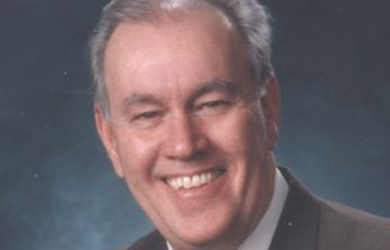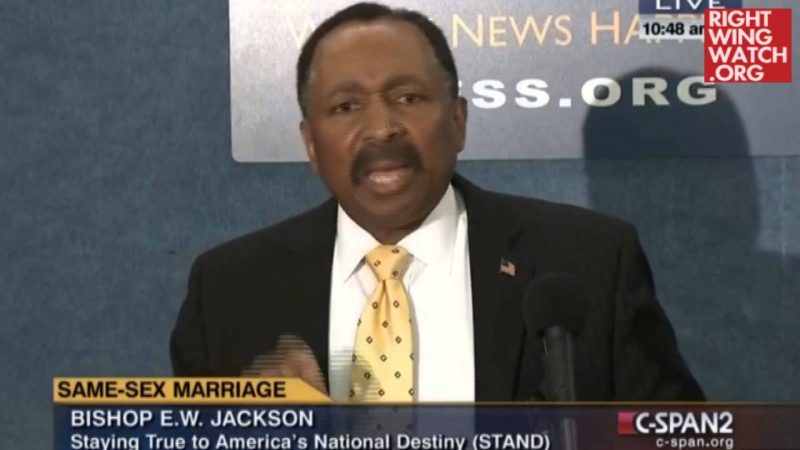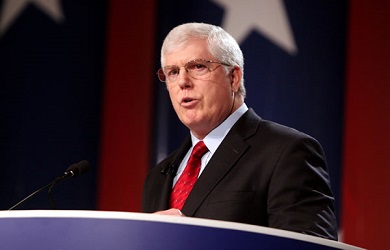Sen. Rob Portman has, unsurprisingly, been faced with a barrage of criticism from Religious Right groups since he announced that, inspired by his gay son, he had changed his mind to support marriage equality. But perhaps no one has been more upset with Portman than Ohio anti-gay leader Phil Burress of Citizens for Community Values. Last week, Burress called Portman “a very troubled man” who is “distraught over what’s happened to his son.”
On Wednesday, Burress took to “ex-gay” activist Michael Brown’s “Line of Fire” radio program to recount a conversation he had with Portman shortly before the senator’s announcement. Portman was “dejected” and “basically sad throughout the conversation,” Burress says. And while Burress had initially thought Portman was “looking for help for his son to walk away from the lifestyle” through “ex-gay” therapy, it eventually became “obvious that he was going to embrace his son’s behavior, which was devastating, because he just gives his son no chance whatsoever of understanding, you know, that he doesn’t have to be that way.”
Burress knows who to blame for this change of heart in father and son: Yale University, where the younger Portman is currently a freshman. At Yale, Burress says, Portman’s son was “probably associating with the other homosexual activists” and ultimately “forced his dad’s hand on this thing.”
Burress: He called me the night before he went public and told me that he was the first one that he wanted to call, and we shared ideas and thoughts. And when he first called me, I thought he was looking for help for his son to walk away from the lifestyle, because I’m pretty sure that he knows that I spent four and a half years on the board of an international organization helping people walk away. And he dropped the bomb on me by saying he was going to change his opinion, which I still today cannot believe that he did that because this is a principled issue and you just don’t turn your back on principled issues.
Brown: Phil, do you think, and you wrote a very gracious but firm editorial that’s getting a lot of national exposure, do you think that he was unaware before this that his son felt that his homosexuality was not a choice? Because he announced it as if this was a new revelation.
Burress: Well, he knew about it for two and a half years. So, apparently in thinking back, he, they learned about it while he was a freshman in high school, and now he’s a, excuse me, a junior in high school, and now he’s a freshman at Yale. And I don’t think there’s any coincidence to this whatsoever that he came home, probably associating with the other homosexual activists at Yale, and I think maybe he forced his dad’s hand on this thing because, that’s just my gut feeling, because Rob started off the conversation by saying, ‘I’ve got some really bad news,’ and he was dejected and basically sad throughout the whole conversation. And it ended up being a conversation, a dad to a dad, but it was obvious that he was going to embrace his son’s behavior, which was devastating, because he just gives his son no chance whatsoever of understanding, you know, that he doesn’t have to be that way. And I told him that it’s not innate, it’s a learned behavior.
Later in the program, Burress promised electoral defeat for Portman if he runs for reelection in 2016. Burress notes that former Ohio Republican Sen. Mike DeWine lost his bid for reelection in 2006 after opposing a state constitutional amendment banning gay marriage. Burress neglects to mention that DeWine, who supported a federal gay marriage ban, in fact lost to Democrat and gay-rights supporter Sherrod Brown.
Brown: What do we do now? Do we just say, ‘Another loss, throw in the towel, America’s capitulating,’ or can we bring about change?
Burress: We can bring about change alright, and what’s surfacing now is what happened to Mike DeWine, Senator Mike DeWine, when he opposed us in 2004. I chaired the marriage amendment in Ohio to change the constitution here in Ohio and Senator DeWine came out against us. And he’d been in the Senate for, I think, two or three terms, and obviously that cost him his election. When he ran again, he got beat because he switched his position. And there’s no doubt in my mind that the same thing’s going to happen, based on the emails and the calls we’re getting, is that people are not only devastated but are angry that they have somebody up there that they voted for to represent their point of view and their values and he’s turned his back on them. This is a non-negotiable issue with our organization and he will be listed on our annual, what we call Ohio Election Central, our reporting agency where we endorse candidates, as ‘unacceptable for public office.’







